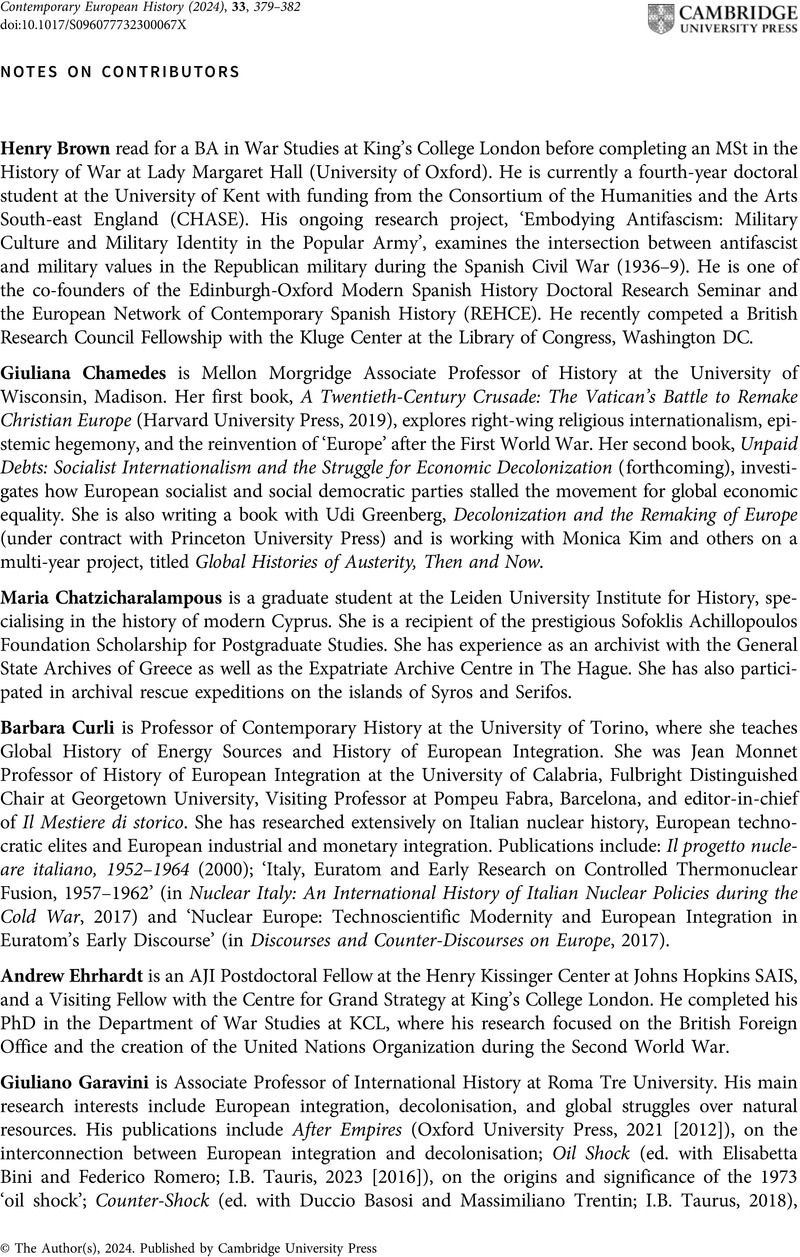No CrossRef data available.
Article contents
Notes on Contributors
Published online by Cambridge University Press: 25 January 2024
Abstract
An abstract is not available for this content so a preview has been provided. Please use the Get access link above for information on how to access this content.

- Type
- Notes on Contributors
- Information
- Copyright
- Copyright © The Author(s), 2024. Published by Cambridge University Press



